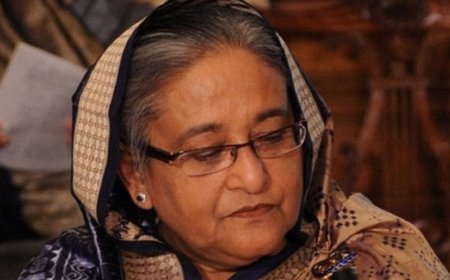Reexamining the Constitution
Reexamining the Constitution

As I mentioned earlier in this series, the concept of drafting a new constitution is much more challenging than it might seem. The Canadian Supreme Court, in the *Reference re Secession of Quebec* case, observed that every citizen has a right to participate in democratic governance, which includes the right to partake in constitution-making. This process is intricate and requires ongoing dialogue, an obligation to listen to dissenting opinions, and a commitment to addressing those concerns. Given the current state of Bangladesh’s interim government and the pressing need for institutional reforms, such an enormous undertaking like creating a new constitution may not be practical at this time.
Whether or not Bangladesh needs a new constitution, there is widespread agreement that the country's political challenges, including the rise of authoritarianism, stem from its existing constitutional framework. Therefore, reform is necessary to prevent further political turmoil. This section focuses on Article 70 of the Constitution, which deals with anti-defection, and argues that this provision hampers healthy democratic practices and contributes to an authoritarian political culture. It also suggests potential amendments to the Constitution to reform the anti-defection clause.
The History of the Anti-Defection Provision
Article 70 of the Constitution includes the anti-defection provision, which mandates that a Member of Parliament (MP) must vacate their seat if they (a) resign from the political party that nominated them or (b) vote against that party in Parliament. The contentious part is Article 70(b), which pertains to "floor crossing" — when an MP votes against their party’s position.
Debates in the 1972 Constituent Assembly reveal considerable discussion on this article. Opposition member Suranjit Sengupta criticized Article 70 as undemocratic, noting that no other constitution in the world contained such a provision. In response, Kamal Hossain, then Minister for Law and head of the Constitution Drafting Committee, argued that MPs, having been elected by a party, should adhere to party discipline and directives in Parliament.
The constitutionality of Article 70 has been challenged in court. In *Writ Petition No. 5675 of 2017*, the High Court upheld the provision, emphasizing its purpose to ensure MPs maintain loyalty to their party and prevent "horse trading" and political instability.
Arguments For Anti-Defection
Anti-defection laws are more common in developing countries where democracies are fragile. Many Commonwealth nations, including India, Kenya, Sri Lanka, and Nigeria, have similar provisions. Supporters argue that floor crossing undermines the democratic process, distorting party discipline and eroding public confidence for personal or political gain. Additionally, such provisions help prevent political instability that could result in governments losing their ability to govern effectively.
Arguments Against Anti-Defection
Despite the challenges of Bangladesh's political landscape, some form of anti-defection law may be necessary to maintain stability. However, the problem with Article 70(b) is its blanket application: it punishes all defections, regardless of whether they are motivated by conscience or corrupt practices. This lack of nuance makes the provision problematic.
Bangladesh’s electoral system is a mix of "candidate-centric" and "party-centric" democracy. While people vote for individual candidates, Article 70(b) forces MPs to follow their party's line, even when it conflicts with their conscience or their constituency’s interests. This effectively subordinates MPs to their political parties, undermining the democratic principle of representation.
Research has shown that anti-defection laws often prove unworkable. Few countries retain such laws, suggesting they are not conducive to long-term democratic stability.
Recommendations for Change
I do not advocate for the complete abolition of the anti-defection law. Political parties are central to democracy in Bangladesh, and voters often make their decisions based on party allegiance. However, as the Constitutional Court of South Africa noted, elected representatives must have the freedom to act against their party’s wishes when necessary for democracy to function properly.
With this in mind, I propose two possible amendments to Article 70(b):
1. Introduce a Due Process Clause: Before an MP’s seat is vacated for defection, they should have the right to defend their actions, especially if their defection is based on constituency interests rather than personal gain. If their defense is rejected, they should be able to appeal the decision to the Appellate Division.
2. Implement a Recall Clause: This would allow the electorate to remove an MP who is seen as ineffective or unfit for office through a petition and vote process. This would restore some power to the people, providing a balance between party control and public accountability.
Conclusion
As I argued in the first part of this series, constitutions must evolve with time. The framers of the 1972 Constitution introduced Article 70 to ensure stability, but its current application suppresses democratic representation. Revisiting Article 70(b) is necessary to give MPs more autonomy and to empower the people they represent. Without this, Bangladesh risks continuing down a path toward authoritarianism, with political parties holding disproportionate control over the nation’s democratic processes.
— *Junayed Chowdhury is an Advocate at the Supreme Court of Bangladesh.*
What's Your Reaction?




















































































